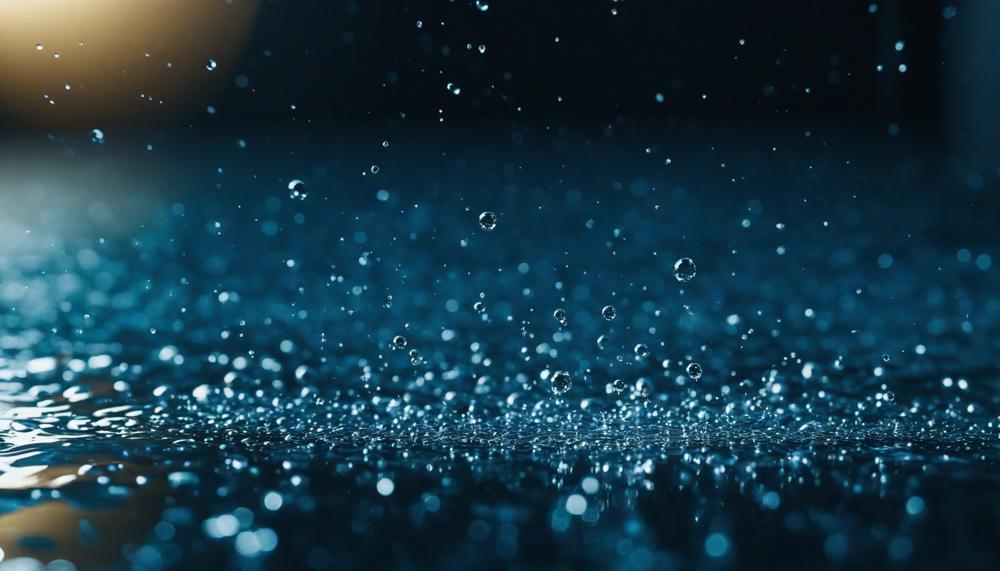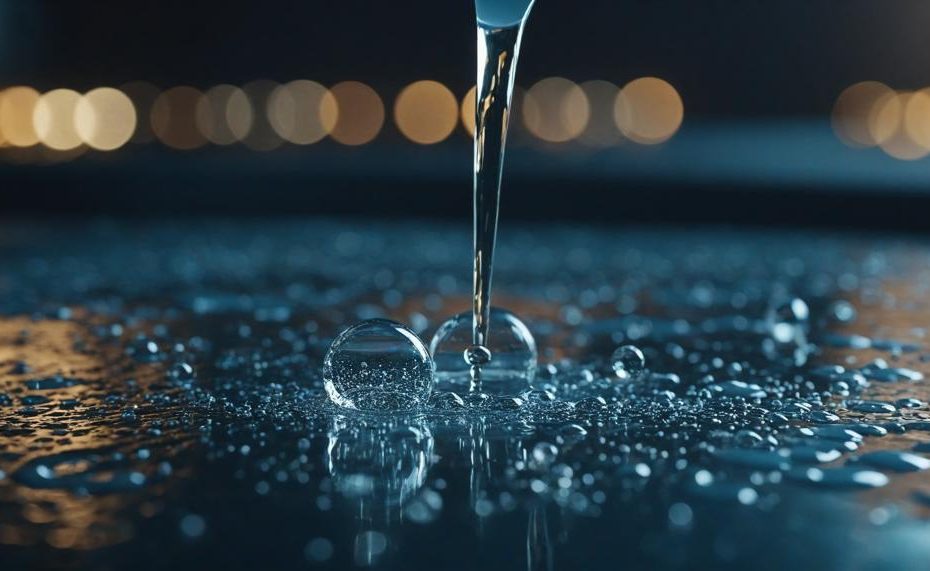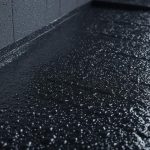Yes, Elmer’s glue does dissolve in water.
Elmer’s glue, a staple in many households and classrooms, is a type of polyvinyl acetate (PVA) adhesive. This means that it primarily consists of polymers derived from vinyl acetate monomers. When Elmer’s glue dries, the water content evaporates, leaving behind a strong bond.
However, when reintroduced to water, it can dissolve under certain conditions. This property is crucial for anyone who needs to clean up spills or remove dried glue from surfaces. Here’s what you need to know:
- Water Solubility: Elmer’s glue can dissolve in water, breaking down the polymer chains and reducing its adhesive strength.
- Conditions Matter: The rate and extent of dissolution depend on factors such as water temperature, exposure duration, and the glue’s specific formulation.
- Practical Uses: Knowing that Elmer’s glue dissolves in water helps in cleaning up glue spills or removing dried glue without harsh chemicals.
Understanding these points can make handling Elmer’s glue more efficient and effective. Whether you’re dealing with a crafting project gone awry or simply cleaning up, knowing how Elmer’s glue interacts with water can be quite handy.
Table of Contents
What is Elmer’s Glue?
Elmer’s Glue is a widely recognized brand of adhesive known for its versatility, particularly in school projects, DIY crafts, and household repairs. It is primarily composed of polyvinyl acetate (PVA) emulsion, which gives it its characteristic white, creamy texture and adhesive properties.
Elmer’s Glue has been a staple in many households and classrooms for over six decades, making it synonymous with school glue and crafting adhesives. Its non-toxic formulation makes it safe for children to use, which contributes to its popularity in educational settings.
Properties of Elmer’s Glue
| Type | Polyvinyl Acetate (PVA) Emulsion |
| Color | White (dries clear) |
| Uses | School projects, crafts, repairs |
| Safety | Non-toxic |
| Water Solubility | Yes, dissolves in water |
Key Characteristics
- Non-Toxic: Safe for children, making it ideal for school environments.
- Versatile: Suitable for various materials including paper, wood, and fabrics.
- Easy to Clean: Its water-soluble nature allows for easy cleanup with water.
- Dries Clear: Provides a neat finish without visible residue.
Applications
Elmer’s Glue is favored for its ease of use and effectiveness across a range of applications:
- School Projects: Ideal for bonding paper, cardboard, and other lightweight materials.
- Crafts: Perfect for creating DIY projects, from scrapbooking to model building.
- Repairs: Can be used for minor household repairs on porous materials.
Additional Insights
Understanding the solubility of Elmer’s Glue in water is particularly beneficial for users. When Elmer’s Glue dries, the water within the emulsion evaporates, forming a strong bond.

However, reintroducing water can break down this bond, dissolving the glue and making it easier to remove. This property is useful for cleaning up spills or undoing mistakes in crafting projects.
Types of Elmer’s Glue
Elmer’s Glue offers a variety of products tailored for different uses. Here’s a breakdown of the types of Elmer’s glue and their water solubility characteristics:
| Type of Elmer’s Glue | Description | Water Solubility |
| Elmer’s School Glue | White glue that dries clear, commonly used for school projects and crafts. | Soluble in water before drying. Once dried, it can still dissolve with prolonged exposure to water. |
| Elmer’s Clear Glue | Transparent glue that provides a clear finish, ideal for projects requiring an invisible bond. | Similar to School Glue, it is water-soluble before drying and can soften or dissolve with water after drying. |
| Elmer’s Clear Washable Glue | Translucent and washable glue, perfect for children’s projects due to its easy cleanup. | Highly water-soluble both before and after drying, designed for easy washability. |
| Elmer’s Clear Glue Stick | Glue stick that dries clear, used for paper projects and school work. | Water-soluble before drying and can be dissolved in water after drying, though less so than liquid forms. |
| Elmer’s Glue-All | Multi-purpose glue that bonds a variety of materials such as paper, wood, fabric, and ceramics. | Water-soluble before drying, and water-resistant (but not waterproof) after drying, making it harder to dissolve once set. |
Insights:
- School Glue and Clear Glue: Both are excellent for general crafts and school projects. They are easy to clean with water before drying, and even after drying, they can dissolve with water if soaked for a while.
- Clear Washable Glue: Best for children’s projects where cleanup is important. It dissolves quickly in water both before and after drying.
- Clear Glue Stick: Convenient for paper projects, offering a neat application. While it can be dissolved in water, it’s more resistant than liquid forms.
- Glue-All: More versatile and slightly more water-resistant, suitable for a variety of materials. It’s tougher to dissolve once dried but not entirely waterproof
Does Elmer’s School Glue Dissolve in Water?
Yes, Elmer’s School Glue does dissolve in water. This is due to its composition, primarily made up of polyvinyl acetate (PVA) and water. When additional water is introduced, it breaks down the PVA molecules, causing the glue to dissolve.
Elmer’s School Glue is designed to be water-soluble, making it ideal for projects that may require easy clean-up. The glue’s formulation allows it to mix with water, breaking down the adhesive properties and returning to a liquid state.
This characteristic is particularly useful in educational settings, where children’s projects might get messy and need easy cleaning.
Here’s a closer look at the dissolution process:
| Component | Function | Effect of Water |
| Polyvinyl Acetate (PVA) | Main adhesive element | Breaks down and disperses in water |
| Water | Solvent in the glue | Increases solubility when more is added |
When water is added to Elmer’s School Glue, the PVA molecules interact with the water molecules. This interaction reduces the glue’s adhesive strength, leading to its dissolution. This process makes the glue easy to wash off from surfaces and hands, which is a key feature for school and home craft projects.
Does Elmer’s Carpenter’s Wood Glue Dissolve in Water?
The short answer is no, Elmer’s Carpenter’s Wood Glue does not dissolve in water. Here’s why:
Elmer’s Carpenter’s Wood Glue is specifically formulated to be water-resistant, which makes it suitable for woodworking projects that might encounter occasional moisture.
However, it’s essential to note that while it’s water-resistant, it’s not entirely waterproof. This distinction means that while the glue can withstand brief exposure to water, prolonged exposure will eventually weaken its bond.
Detailed Analysis:
- Composition: The glue is made of a blend of water and a polymer. This combination ensures that the glue can resist water to some degree, making it ideal for indoor furniture and other woodcraft projects that may occasionally get wet.
- Water Resistance:
- Short-Term Exposure: Brief contact with water, such as a spill, will not dissolve the glue or significantly impact its adhesive properties.
- Prolonged Exposure: If the glue is exposed to water for an extended period, the water can slowly infiltrate and weaken the polymer structure. This process causes the glue to lose its strength and adhesion over time.
- Factors Affecting Durability:
- Level of Exposure: The amount and duration of water exposure directly impact how quickly the glue will weaken.
- Temperature: Higher temperatures can accelerate the breakdown of the polymer when exposed to water.
- Type of Wood: Some woods may absorb water more readily, potentially leading to faster weakening of the glue bond.
Practical Implications:
For projects that require sustained water exposure or are meant for outdoor use, a waterproof wood glue or an epoxy might be a better choice. However, for most indoor applications, Elmer’s Carpenter’s Wood Glue provides sufficient water resistance.
Does Elmer’s Epoxy Glue Dissolve in Water?
The short answer is no, Elmer’s Epoxy Glue does not dissolve in water. Once fully cured, this adhesive forms a robust and water-resistant bond, making it ideal for various applications where water exposure is a concern.
When Elmer’s Epoxy Glue cures, a chemical reaction occurs between its two components, creating a hardened, durable structure. This curing process results in a bond that is highly resistant to water and other liquids.
Below is a detailed analysis of why Elmer’s Epoxy Glue maintains its integrity even when exposed to water:
Water Resistance Attributes:
- Chemical Bonding:
- The two-part system of Elmer’s Epoxy Glue involves a resin and a hardener. When mixed, they undergo a chemical reaction known as polymerization.
- This reaction forms a strong, cross-linked molecular structure that is impervious to water.
- Durability:
- After curing, the epoxy forms a solid, rigid structure that doesn’t break down or dissolve when submerged in water.
- This property makes it suitable for both indoor and outdoor projects, including those exposed to harsh weather conditions.
- Applications:
- Due to its water resistance, Elmer’s Epoxy Glue is often used in marine applications, repair of water tanks, and other areas where moisture is prevalent.
Can Prolonged Exposure to Moisture Weaken Certain Types of Elmer’s Glue?
Prolonged exposure to moisture can indeed weaken certain types of Elmer’s Glue. Here’s a breakdown of how different types respond to moisture:
- Elmer’s School Glue: This type of glue is water-soluble. Prolonged exposure to moisture will weaken the bond as it can dissolve in water. This makes it ideal for temporary projects or crafts that do not require durability against moisture.
- Elmer’s Carpenter’s Wood Glue: While this glue offers some water resistance, it is not fully waterproof. Prolonged exposure to water can cause the polymer in the glue to break down, weakening the bond over time. It’s suitable for wood projects but should be protected from constant moisture.
- Elmer’s Carpenter’s Wood Glue Max: This version is more water-resistant than the regular Carpenter’s Wood Glue, but it’s still not completely impervious to prolonged moisture. Extended exposure can still degrade the adhesive strength.
- Elmer’s Epoxy Glue: This type of glue, once fully cured, is resistant to water. It can withstand moisture exposure better than the other types, making it suitable for projects needing a higher degree of water resistance. However, even epoxy glue is not entirely waterproof and can lose strength over prolonged and intense moisture exposure.
Conclusion
Elmer’s Glue, a beloved household adhesive, is versatile and user-friendly, making it a go-to for various projects. Its primary ingredient, polyvinyl acetate (PVA), grants it unique properties, especially regarding water solubility. When Elmer’s glue is exposed to water, the adhesive’s polymer chains break down, reducing its strength. This feature is particularly handy for cleanup or correcting crafting errors.
Understanding the conditions that affect Elmer’s glue’s solubility is essential. The temperature of the water, duration of exposure, and the glue’s specific type play significant roles. For instance, Elmer’s School Glue and Clear Glue dissolve more readily in water, making them perfect for educational settings where easy cleanup is a priority. In contrast, Elmer’s Carpenter’s Wood Glue offers some water resistance, suitable for indoor woodworking projects that might encounter occasional moisture.
Moreover, Elmer’s Epoxy Glue, once cured, exhibits robust water resistance, ideal for projects requiring a durable, moisture-resistant bond. This glue type is often used in marine repairs and other applications where water exposure is frequent.
In essence, Elmer’s Glue’s interaction with water varies across its product range, but this solubility is a crucial characteristic that enhances its usability.






